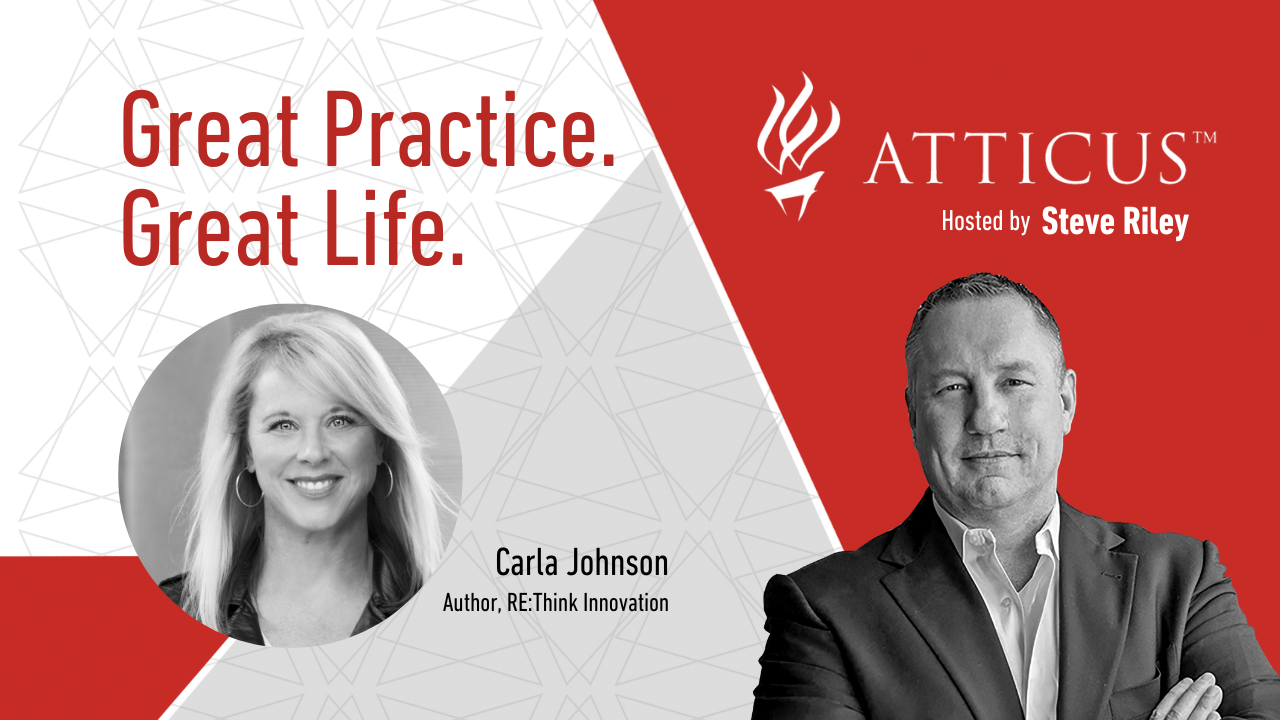
Innovation for Attorneys
Many lawyers have trouble with innovation.
There are a variety of challenges and traps that come with innovating in the legal field. Additionally, whether someone is a lawyer or not, innovation doesn’t come naturally as adults.
On top of all of this, there’s also the question of why it matters. You might wonder if innovation brings any benefit to attorneys. Should you care about it at all?
Today, we’re going to discuss all of this. I’m drawing ideas from a conversation I recently had with the innovation expert, Carla Johnson, in which she explained why innovation is important in the legal field and how to develop it.
Innovation As A Business Tool
Innovation is more important now than it’s ever been in business.
There are so many pieces that constantly change in the business world. Even if lawyers have processes that they follow, there are many variables within those processes. However, they often don’t give themselves credit or allow themselves the leeway to think differently and look for those hidden opportunities.
As we look at what could be ahead of us, the whole idea of having an innovator’s mindset is all about looking for opportunity in that way.
No matter your practice area, you need to figure out what makes you different from everybody else. How will you differentiate your firm from the competition?
If you’re not sure, start by being more observant of the world around you. As a law firm owner, you want to be the best in customer experience. However, unless you take the time to observe the details of what you believe creates a beautiful, memorable, and impactful customer experience, you won’t be able to deliver it.
Next, take all of the things you observe and distill them into patterns. Patterns are how you create an experience and a lasting memory. They are what makes your customers look forward to their next appointment with you.
Finally, you must understand how to relate those patterns to the work that you do. This isn’t about innovating the whole legal process. It’s about looking at opportunities to innovate the experience that you deliver. Take those very detailed observations that you have, recognize the patterns, and begin to relate those to the work that you do with your team.
How to Become More Innovative
One of the challenges that we have as lawyers is that we get caught up in an academic mindset. We think that every client or prospect is coming to us because of how smart we are.
On top of that, we fall prey to something called complexity bias. We don’t believe something has validity unless it’s incredibly complex. Whether we realize it or not, we purposely make things more complex than they need to be.
However, in truth, many of your clients won’t come to you for your brain or because you make things complex. They come to you for the experience you provide them.
Sometimes, having an innovator’s mindset means simplifying things. Just look at Google. They looked at what other search engines were doing and made it crisp, clear, and incredibly simple.
The question to ask yourself is, how might this be easy? The answer to that question can be incredibly innovative.
Additionally, as an attorney, you don’t have time to stop and do innovation. That’s why it’s such good news that you don’t have to.
The beautiful thing about innovation is that you can queue it up long before you need it. When you practice observing the world around you and looking for patterns, your brain starts looking for ways and places to apply them.
If you want to learn more about how to become more innovative as an attorney, check out Episode 007: Can Lawyers Innovate, and Why Do We Care to Even Innovate? with Carla Johnson.
Steve Riley
Certified Practice Advisor & Attorney
Steve Riley has coached attorneys for more than 20 years. His one-on-one coaching focuses on a limited number of top producing attorneys committed to taking their practices to new levels of excellence, profit, and personal success. He also presents at group coaching workshops around the country for individual law firms, state bar associations, and other legal organizations.


